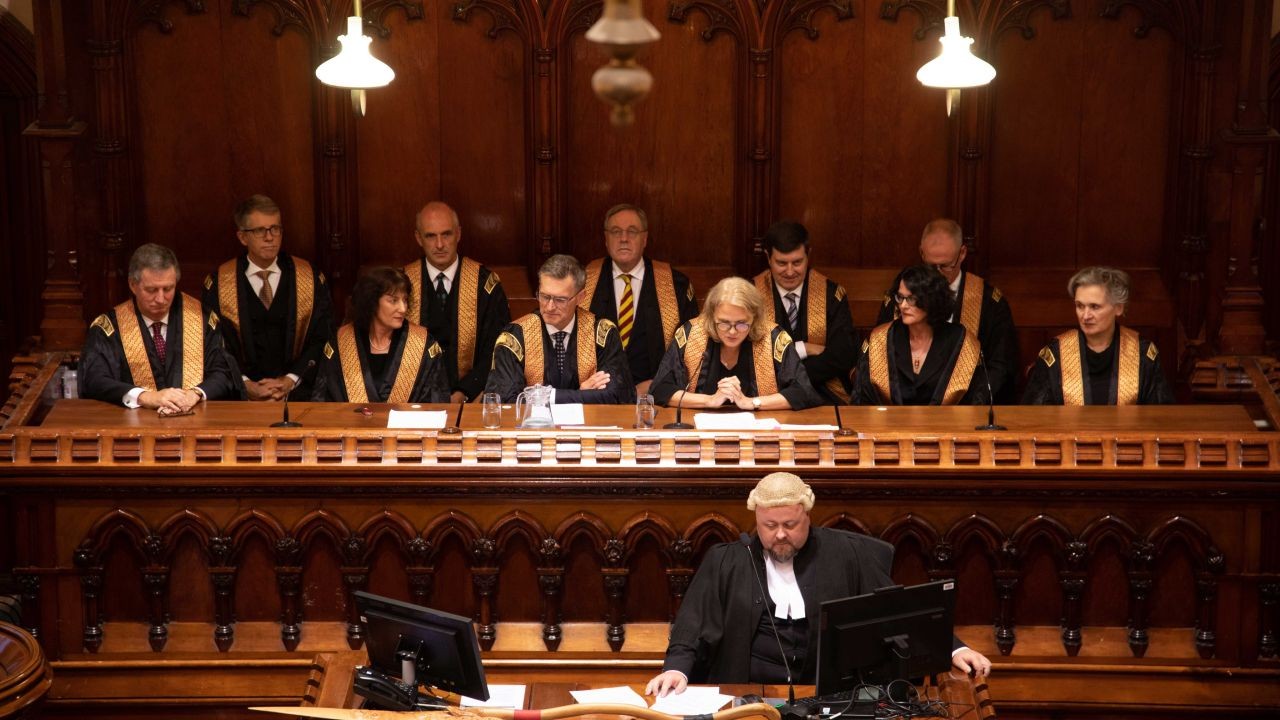In a world increasingly defined by interconnected economies and shared global challenges, the diplomatic relations a nation cultivates can be a significant determinant of its economic prosperity and resilience. New Zealand, despite its geographical isolation, is a prominent player on the global stage. The country's diplomacy is not only crucial for fostering international partnerships but also plays an integral role in enhancing its economic landscape. Leveraging diplomatic channels can lead to economic opportunities, sustainability advancements, and cultural exchanges that enrich New Zealand's socio-economic fabric. In this article, we will explore the top five reasons why New Zealand’s global diplomacy matters, with a focus on its economic implications and strategic importance.
1. Strengthening Trade Relations
New Zealand's economy heavily relies on trade, with exports accounting for a significant portion of the GDP. The nation’s diplomatic efforts have been pivotal in establishing and maintaining a network of free trade agreements (FTAs) that facilitate access to key international markets. For instance, the Comprehensive and Progressive Agreement for Trans-Pacific Partnership (CPTPP) and the Free Trade Agreement with China have opened doors for Kiwi products, leading to a reported 23% increase in trade volume with CPTPP countries since 2018 (Source: Stats NZ).
Case Study: The China-New Zealand Free Trade Agreement
The China-New Zealand Free Trade Agreement (FTA), signed in 2008, serves as a perfect illustration of the economic benefits derived from strategic diplomacy.
Problem: Prior to the FTA, New Zealand faced high tariffs on its exports to China, limiting the competitive edge of Kiwi goods in the Chinese market.
Action: Through diplomatic negotiations, New Zealand secured an FTA with China, reducing tariffs significantly on key exports like dairy and meat.
Result: Since the agreement's implementation, New Zealand’s exports to China have grown by over 400%, with dairy products leading the charge, resulting in billions of NZD in revenue.
Takeaway: This case highlights the critical role of diplomacy in enhancing trade partnerships, which is instrumental for New Zealand's export-driven economy.
2. Enhancing Economic Resilience
Global diplomacy is vital for strengthening New Zealand's economic resilience. By fostering cooperative relationships with various countries, New Zealand can better withstand global economic fluctuations and mitigate risks associated with trade disruptions. Diplomatic efforts have also helped in diversifying trade partners, reducing dependency on a single market.
For example, during the COVID-19 pandemic, New Zealand's strong diplomatic ties allowed for re-routing of exports when certain borders were closed, ensuring the continuity of trade flows. Moreover, these relationships have facilitated crucial supply chain adjustments and ensured access to essential goods.
Pros and Cons of Diplomatic Engagement
Pros:
- Market Access: Opens doors to new markets and reduces trade barriers.
- Stability: Provides a framework for dispute resolution, enhancing economic stability.
- Innovation Exchange: Encourages the sharing of technology and best practices.
Cons:
- Complex Negotiations: Diplomatic agreements can be time-consuming and complex to negotiate.
- Dependence Risk: Over-reliance on certain diplomatic relationships can lead to vulnerabilities.
3. Promoting Sustainable Development
New Zealand’s commitment to sustainability is reflected in its diplomatic initiatives, which often emphasize environmental considerations. By engaging in international forums and agreements such as the Paris Agreement, New Zealand is not only contributing to global sustainability efforts but also positioning itself as a leader in green innovations. This proactive stance attracts eco-conscious investors and enhances the country's reputation as a sustainable producer, which is increasingly appealing to global consumers.
Case Study: New Zealand’s Leadership in the Paris Agreement
Problem: Climate change poses significant risks to New Zealand’s agriculture and tourism sectors.
Action: New Zealand has actively participated in the Paris Agreement, committing to reducing greenhouse gas emissions and promoting sustainable practices.
Result: The country has witnessed a surge in investment in renewable energy projects, with wind and solar energy capacity increasing by 35% over the last five years (Source: MBIE).
Takeaway: Diplomatic engagement in global sustainability initiatives not only helps mitigate environmental risks but also drives economic growth through green investments.
4. Cultural Exchange and Soft Power
Diplomacy extends beyond economic and political realms; it fosters cultural exchange, which can significantly impact New Zealand’s global image and influence, known as soft power. Cultural diplomacy helps promote New Zealand’s unique heritage and values on the world stage, attracting tourism and enhancing its brand as a destination for international students.
For instance, initiatives like the New Zealand International Education Strategy aim to double the value of international education by 2030. This strategy not only brings economic benefits but also strengthens cultural ties and mutual understanding between New Zealand and its partner countries.
5. Contributing to Global Peace and Security
New Zealand’s diplomatic efforts are also crucial in global peacekeeping and security. By participating in international peacekeeping missions and supporting multilateral frameworks, New Zealand enhances its security and contributes to global stability. Such involvement not only fulfills humanitarian goals but also aligns with economic interests by ensuring safe trade routes and stable international markets.
Myths and Mistakes in Understanding New Zealand's Diplomacy
Myth: "Diplomacy is only about trade deals."
Reality: While trade is a significant aspect, diplomacy encompasses security, cultural exchange, and sustainable development, all of which are vital for New Zealand’s holistic growth.
Myth: "New Zealand’s small size limits its diplomatic influence."
Reality: Despite its size, New Zealand's commitment to multilateralism and sustainability has earned it a respected voice in global forums.
Future Trends in New Zealand’s Diplomacy
Looking forward, New Zealand's diplomatic strategy is likely to focus on digital diplomacy, leveraging technology to enhance international relations. According to a report from NZTech, digital diplomacy can streamline communication and negotiations, making them more efficient and inclusive.
Furthermore, as the global focus shifts towards sustainability, New Zealand has the potential to become a leader in green diplomacy, advocating for climate action and sustainable development on the global stage. By 2030, New Zealand could see its renewable energy sector double, driven by international collaborations and investments.
Conclusion
New Zealand's global diplomacy is a cornerstone of its economic strategy, fostering trade, enhancing resilience, promoting sustainability, and enriching cultural exchanges. By understanding and leveraging these diplomatic relationships, New Zealand can secure its place as a proactive and respected player on the global stage. As the world evolves, so too will the dynamics of diplomacy, offering New Zealand new opportunities to shape its economic and cultural future.
What are your thoughts on New Zealand's diplomatic strategies? How do you think they will impact the country's future? Share your insights in the comments below!
People Also Ask (FAQ)
- How does New Zealand's diplomacy impact its economy? New Zealand’s diplomacy facilitates free trade agreements, enhancing export opportunities and economic growth. Diplomatic ties also ensure the resilience of supply chains during global disruptions.
- What are the biggest misconceptions about New Zealand’s diplomacy? A common myth is that diplomacy is solely about trade deals. In reality, it encompasses cultural exchanges, security collaborations, and sustainable development efforts.
- How does New Zealand benefit from cultural diplomacy? Cultural diplomacy enhances New Zealand’s global image, attracting tourism and international students, thereby boosting economic and cultural ties.
- What role does New Zealand play in global security? New Zealand contributes to global peace and security through international peacekeeping missions and supports multilateral frameworks to maintain stable trade routes.
- How is digital diplomacy shaping New Zealand’s future? Digital diplomacy is expected to streamline communication and negotiations, making them more efficient and inclusive, positioning New Zealand as a leader in tech-driven international relations.
Related Search Queries
- New Zealand trade agreements
- New Zealand global diplomacy
- Cultural diplomacy benefits
- New Zealand renewable energy investments
- Paris Agreement impact on New Zealand
- New Zealand international education strategy
- Digital diplomacy in New Zealand
- New Zealand peacekeeping missions











































CorineElwe
21 days ago